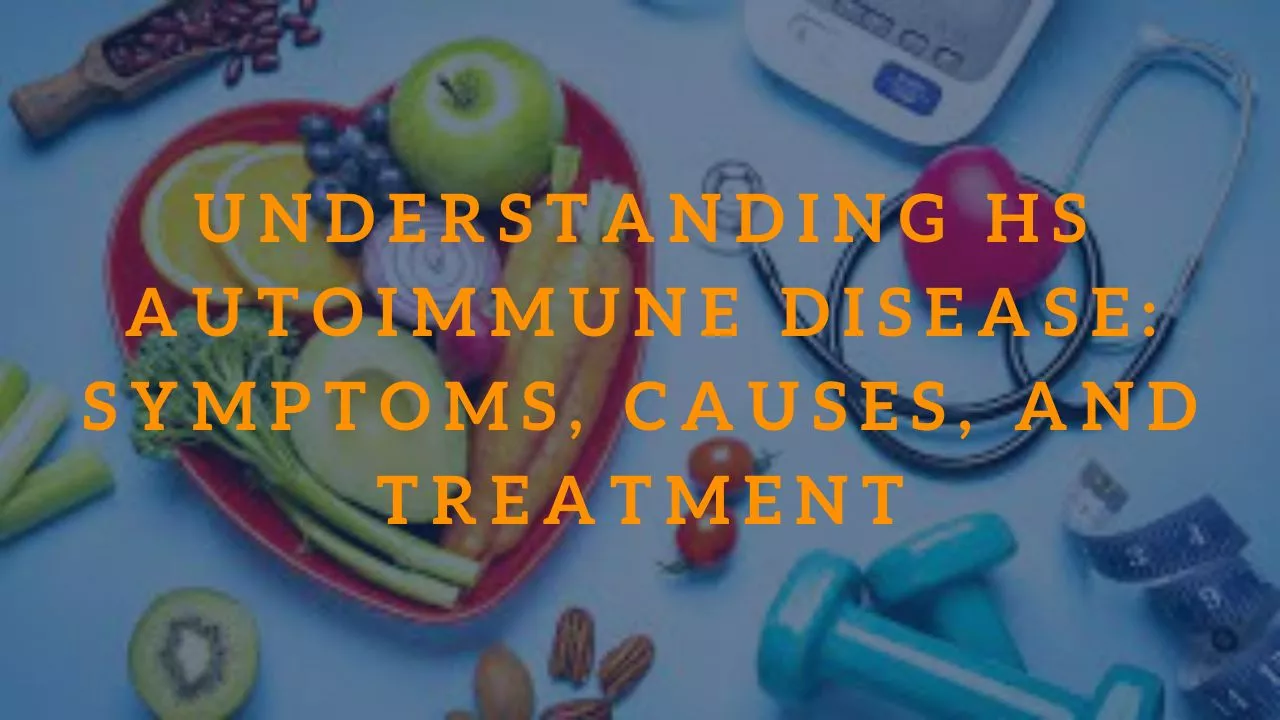Hello 1-GSM Visitors! Autoimmune diseases can be complex and difficult to understand, especially for those who are not familiar with medical terminology. One such condition is HS autoimmune disease, also known as hidradenitis suppurativa.

What is HS Autoimmune Disease?
HS autoimmune disease is an inflammatory skin condition that affects the hair follicles and sweat glands in the armpits, groin, and other areas of the body. It causes painful, recurrent abscesses, nodules, and scars that can be distressing and debilitating for patients. The exact cause of HS autoimmune disease is unknown, but it is believed to be related to an abnormal immune response and genetic factors.
Symptoms of HS Autoimmune Disease
The symptoms of HS autoimmune disease can vary from person to person, but some common signs include:- Painful, red, swollen bumps or lumps that can break open and drain pus- Scarring and tunneling under the skin- Foul-smelling discharge- Itching and burning sensations- Skin that is tender to the touch. These symptoms can worsen over time and lead to social isolation, depression, and anxiety.
Causes of HS Autoimmune Disease
The exact cause of HS autoimmune disease is not known, but researchers believe that it may be related to an abnormal immune response. Inflammation in the hair follicles and sweat glands causes them to become blocked, leading to the formation of painful nodules and abscesses. Genetics may also play a role in the development of the disease, as it tends to run in families.
Diagnosing HS Autoimmune Disease
Diagnosing HS autoimmune disease can be challenging, as it is often misdiagnosed as acne, folliculitis, or other skin conditions. A dermatologist will usually perform a physical examination and may order imaging tests or a biopsy to confirm the diagnosis. Blood tests may also be done to rule out other autoimmune diseases.
Treatment for HS Autoimmune Disease
Treatment for HS autoimmune disease can vary depending on the severity of the condition. Mild cases may be treated with topical antibiotics, corticosteroids, or retinoids. More severe cases may require oral antibiotics, immunosuppressive medications, or surgery. Lifestyle changes, such as weight loss and smoking cessation, may also help to improve symptoms.
Coping with HS Autoimmune Disease
Coping with HS autoimmune disease can be challenging, both physically and emotionally. Patients may experience pain, discomfort, and embarrassment due to the symptoms of the disease. It is important to seek support from friends, family, and healthcare professionals. Joining a support group or seeking counseling may also be helpful.
Prevention of HS Autoimmune Disease
Preventing HS autoimmune disease is not always possible, as the exact cause is unknown. However, maintaining good hygiene and avoiding tight-fitting clothing may help to reduce the risk of developing the condition. Quitting smoking and maintaining a healthy weight may also be beneficial.
Research on HS Autoimmune Disease
There is ongoing research on HS autoimmune disease to better understand the causes and develop new treatments. Some areas of research include:- Identifying genetic factors that may contribute to the development of the disease- Studying the role of the immune system in the development of the disease- Developing new medications that target the inflammatory response in the skin
Conclusion
HS autoimmune disease is a challenging condition that can have a significant impact on a patient’s quality of life. Although it is not yet fully understood, there are treatments available to help manage symptoms and improve outcomes. If you or someone you know is living with HS autoimmune disease, it is important to seek support from healthcare professionals and loved ones.
See you again at our other interesting article!
